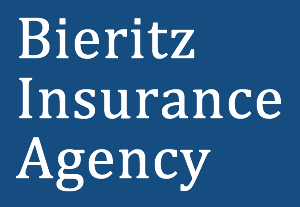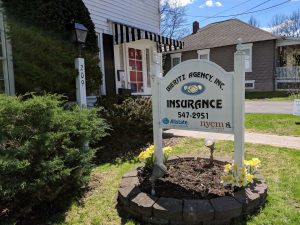Insurance Terms and Definitions
Insurance has it’s own language and it can get confusing when you aren’t quite sure what it all means. In the section below, you will find some of the regularly used terms in case it helps our clients and others. If you have questions, you can always contact us.

“Actual Cash Value” is the replacement cost of property damaged or destroyed at the time of loss, with deduction for depreciation. Actual Cash Value cannot exceed the applicable limit of liability shown in the declarations of the policy, nor the amount it would cost to repair or place such property with material of like kind and quality within a reasonable amount of time after loss.
The person who handles the settlement of claims on behalf of an insurance company, either as an employee of the company or an independent engaged by contract.
The representative of an insurance company responsible for selling and servicing policies. Can be an employee representing only one company or several different companies without being an employee of any of them.
A person who signs and submits a written application for insurance coverage.
The willful, unlawful burning of property. It is is proved the policyholder was responsible for the arson, the insurance company will not pay for the loss.
Optional automobile coverage that pays for medical expenses incurred by the insured driver, or his or her passengers, without regard to who is responsible for the accident.
Contractual protection against losses resulting from the ownership and use of an automobile. Coverages common in auto policies include Fire, Theft, Comprehensive, Collision, Glass, Property Damage, Bodily Injury Liability and Uninsured/Underinsured Motorist.
The person(s) named in the policy to receive the life insurance proceeds upon the death of the insured.
The money to be paid by an insurance company under the terms of the insurance policy.
A legal agreement between an insurance buyer and an insurance company or its agent. It provides temporary insurance coverage until a policy is either issued or refused.
A policy that covers a group of people (such as employees of the same company) or several properties of exposure (kinds of possible losses) under a single contract.
Injury to the body of a person as specifically defined in an insurance policy. Bodily injury liability is the legal responsibility for medical and related cost that may result from injury to the life or health of another person.
The termination of an insurance policy either by the insured party or the insurance company, before its normal expiration date. A cancelable policy includes a provision that the contract can be terminated by either party upon notice to the other. By contrast, a non-cancelable policy cannot be cancelled by the insurance company during its specified term (unless for non-payment of premium).
A trade term for an insurance company.
The amount that is available in cash for loans and that may be available for withdrawals. Accessing the cash surrender value may reduce the death benefit and may increase the risk of lapse.
A demand for payment by a policyholder to an insurance company, or by an injured party to the policyholder, for recovery of a loss.
A section of a policy which deals with a particular subject, such as coinsurance clause.
Insurance against a loss resulting from damage to the covered auto through collision with another object or upset of the auto.
Covers damage to the auto not resulting from collision. For example, an auto is parked near a building being painted and becomes splattered with paint. Most claims paid under this coverage are for fire, theft and windshield breakage.
The part of an insurance policy that spells out the responsibilities of the policyholder and the insurance company.
Term insurance which can be exchanged (converted), at the request of the policy owner without evidence of insurability, for a permanent insurance policy.
The guarantee to pay if specific losses occur, according to the terms of the insurance policy.
This clause extends insurance coverage to include the cost of debris removal resulting from damage caused by a covered loss up to a specified limit of loss. The clause is an additional property insurance coverage.
Normally the first page of a policy which includes the insured’s name, address, how long the coverage applies and how much insurance is being provided.
An optional coverage with some fire policies that provides for the cost of demolishing portions of a building still intact after a fire or explosion. Such demolition is sometimes required by ordinance for safety reasons or by the building code in connection with rebuilding.
A return of part of the premium on participating life insurance that is based on the insurer’s investment, mortality and expense experience. Dividends are not guaranteed.
Provisions of an insurance policy that state what the company will NOT pay for.
Deception or action intended to cheat. In insurance this would mean to intentionally misrepresent or concealment.
A contractual agreement that calls for one party, in exchange for a consideration, to reimburse another party for certain specified losses. The insurance contract is called a policy. The consideration is called premium.
Acceptability by the company of an applicant for insurance.
The person on whose life the policy has been issued.
Expiration or cancellation of an insurance policy by nonpayment of premium.
The unlawful taking of money or property belonging to another.
Life insurance for which the premium remains the same from year to year. The premium is normally more than the actual cost of protection during the earlier years of the policy and less than the actual cost in the later years. The building of a reserve is a natural result of level premiums. The payments in the early years, together with the interest that is to be earned, serves to balance out the underpayment of the later years.
A condition of being bound by law to do something, enforceable in the courts. For insurance purposes it most often involves the payment of damages.
Publication of defamatory information. This can be covered by liability insurance.
A hold or claim one party has on the property of another, usually as security for the debt or other obligation. For example, a home mortgage or loan on a car.
The largest total amount the insurance company will pay for covered losses. Many policies have multiple limits – a certain amount per person, another amount per accident and sometimes, an aggregate limit on all losses paid during the policy term.
For example: 100/300/100. In this example the first “100” represents $100,000 bodily injury coverage per person. The “300” represents $300,000 per accident for bodily injury. The last “100” represents $100,000 limit for property damage.
A loan made by a life insurance company from its general funds to a policy owner on the security of the cash value of a policy.
In the event you could not live in your home after an insured peril occurs, the homeowner’s policy offers payment of temporary living quarters while you are waiting for repair work to be completed. You could also have additional expenses such as food an laundry paid for as well.
(1) Coverage for Loss to the Undamaged Portion of the Building – Pays for the loss of value of an undamaged portion of the existing building which must be demolished and/or removed to conform with municipal ordinance, code, etc. (2) Demolition Cost – Pays for the cost of demolition of the undamaged portions of the building necessitated by the enforcement of building, zoning or land use ordinance or law. (3) Increased Cost of Construction – Pays for an increased expenses incurred to replace the building with one conforming to building laws or ordinances, or to repair the damaged building so that it meets the specifications of current building laws or ordinances.
Insurance that will remain in force with no need to pay additional premiums.
A life insurance policy that is eligible for the payment of dividends by the insurer (see also Dividend).
Any form of life insurance except term insurance. This is generally insurance that builds up a cash value, such as Whole Life.
Normally refers to the comprehensive and collision coverage of an auto policy.
The person who owns a life insurance policy. this is usually the insured person, but it may also be a relative of the insured or a partnership or corporation.
Payments to the insurance company to buy a policy and to keep it in force.
Unlike other types of insurance, replacement cost insurance does not depreciate your property of content values. Every covered item that needs to be replaced will be treated as if it were brand new.
Term insurance which can be renewed at the end of the term, at the option of the policyowner and without evidence of insurability, for a limited number of successive terms. The rates generally increase at each renewal as the age of the insured increases.
Life insurance that does not build up cash value and where the premium normally increases as the insured gets older.
This endorsement is used to extend your automobile policy to reimburse you, up to a predetermined limit per disablement, for towing charges or other specified costs when your auto is disabled by a covered period.
Optional coverage that pays the policyholder in the event an accident is caused by a driver who has no liability insurance or whose insurance is not adequate to cover the full amount of damages for bodily injury losses.
A flexible premium life insurance policy under which the policy owner may change the death benefit from time to time (with satisfactory evidence of insurability for increases) and vary the amount or timing of premium payments. Premiums (less expense charges) are credited to a policy account from which mortality charges are deducted and to which interest is credited at rates which may change from time to time.
A basic type of permanent life insurance which can provide lifetime protection at a level premium. Premiums must generally be paid for as long as the policy is in force.

